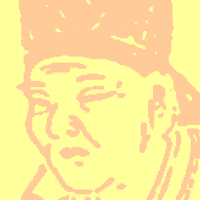
Kobayashi Issa
@issa_haiku
I will send you an Issa haiku once per day, translated into English by David G. Lanoue.
ID: 15983164
http://haikuguy.com/issa/ 25-08-2008 16:07:57
5,5K Tweet
5,5K Takipçi
29 Takip Edilen





















@issa_haiku
I will send you an Issa haiku once per day, translated into English by David G. Lanoue.
ID: 15983164
http://haikuguy.com/issa/ 25-08-2008 16:07:57
5,5K Tweet
5,5K Takipçi
29 Takip Edilen



















